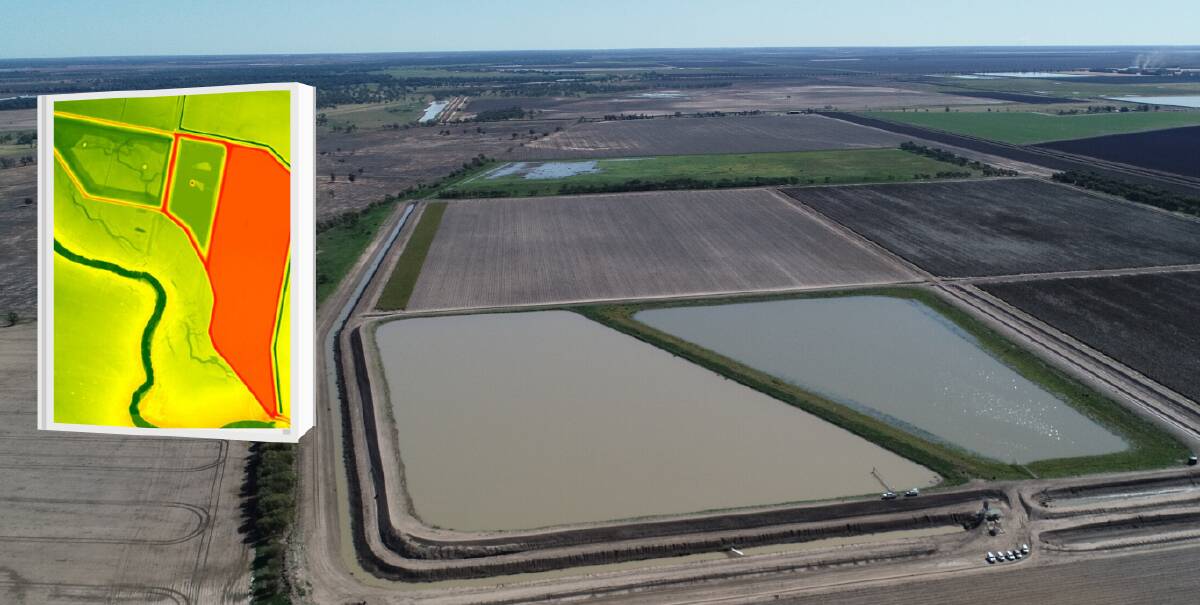
SWEEPING change that will affect the NSW owners of 92 per cent of on-farm water storages in the Murray Darling Basin's Northern Basin has been revealed by Water Minister Melinda Pavey.
The Floodplain Harvesting Measurement Policy, dated July this year, sets out a pathway for measuring, monitoring and licensing water captured during flood events in large on-farm storages.
"The lingering drought and concerns over fish deaths have all highlighted the need for a rigorous and accurate measurement policy for NSW," said Ms Pavey.
"This is the last form of water take to be regulated in NSW and the development of a measurement policy is an historic turning point for our water management system."
The government now believes water privately captured during flood events constitutes as much as 35 per cent of the overall surface take in the Northern Basin and the policy is an attempt to more equitably manage flood water.
It says unmanaged floodplain harvesting has "had significant cumulative negative impacts on Aboriginal culture and traditional practices, non-irrigated agricultural production, downstream communities and provision of ecological services".
All water storages fed by floodplain harvesting with a capacity of more than 1000 megalitres must be metered by July 1 next year and smaller storages by July 1, 2022.
Storages historically used less frequently than one in seven years "as determined by the minister" must have meters "that meets the minister's specifications".
The "minister" is defined as "a delegated authority body acting on behalf of the Minister for Water".
NSW will become the first Australian state to measure and licence privately impounded floodwaters that otherwise would have flowed downstream in the rivers of the Murray Darling system.
"This policy should provide a framework for other states to align with the same standards in management, compliance and transparency that NSW has worked so hard to achieve," Ms Pavey said on Thursday.
The policy was produced by the behemoth Department of Planning, Industry and Environment.
The policy's introduction insists sound policy and regulatory framework must be applied to the Northern Basin to ensure the future security of water access for all water users in the Murray-Darling Basin.
Among the policy's aims is to ensure a fair share of water for Aboriginal and First Nations peoples, for downstream users and to protect the environment and the health of river systems throughout the Murray-Darling Basin, it said.
"The NSW government acknowledges that water harvested from floodplains has become crucially important to the irrigation industry in the Northern Basin and that irrigated agricultural production contributes a substantial component of the northern NSW economy," the document said.
Now all floodplain harvested water directly used or collected and impounded in on-farm storages will be measured.
Farmers will pay for meters to be installed by a certified installer and telemetry meters will feed near real-time information directly to the Natural Resources Access Regulator.
These meters will be calibrated against on-farm Australian Height Datum benchmarks.
Qualified surveyors will have to verify the installation and calibration of any existing on-farm storage benchmarks to ensure benchmarks meet department guidelines.
The policy document said its objectives are to ensure:
- metering equipment fitted to on-farm storages, pipes and pumps are reliable, accurate and tamper-evident.
- measurement requirements are practical, cost effective and can be implemented effectively and safely.
- measurement data is readily available to inform farming decisions and landholder calculations of take, as well as monitoring and evaluation programs.
- measurement requirements generate enough data to trigger an investigation into non-compliance.
It went further, claiming the policy would help ensure landholders remained within their floodplain harvesting access licence limits, overall take was maintained within statutory water limits and . fairness and equity for water users and the environment in the Basin was improved.
It declared on-farm storage as any dam, surge or field where floodplain harvested water is stored outside a floodplain harvesting measurement period.
The policy states "Only duly qualified persons that have undertaken the 'certified storage meter installer and validator' course run by a registered training organisation are permitted to install storage meters that meet the minister's specifications, apply tamper-evident seals and verify the installation of existing storage meters."
The "duly qualified person" will have committed an offence if they do not report faulty equipment or belief the equipment has been tampered with.
Suspicious activity must be reported to the NRAR.
The document said given the time-sensitive nature of floodplain harvesting events and the often large quantity of water taken in an event, the NRAR must have data in near-real time so it can act on any potential compliance cases before it is "too late" (that is, when the floodplain harvesting event has already passed).
Have you signed up for The Land morning briefing? You can register free below. Each weekday morning you'll receive the latest in NSW agriculture.

